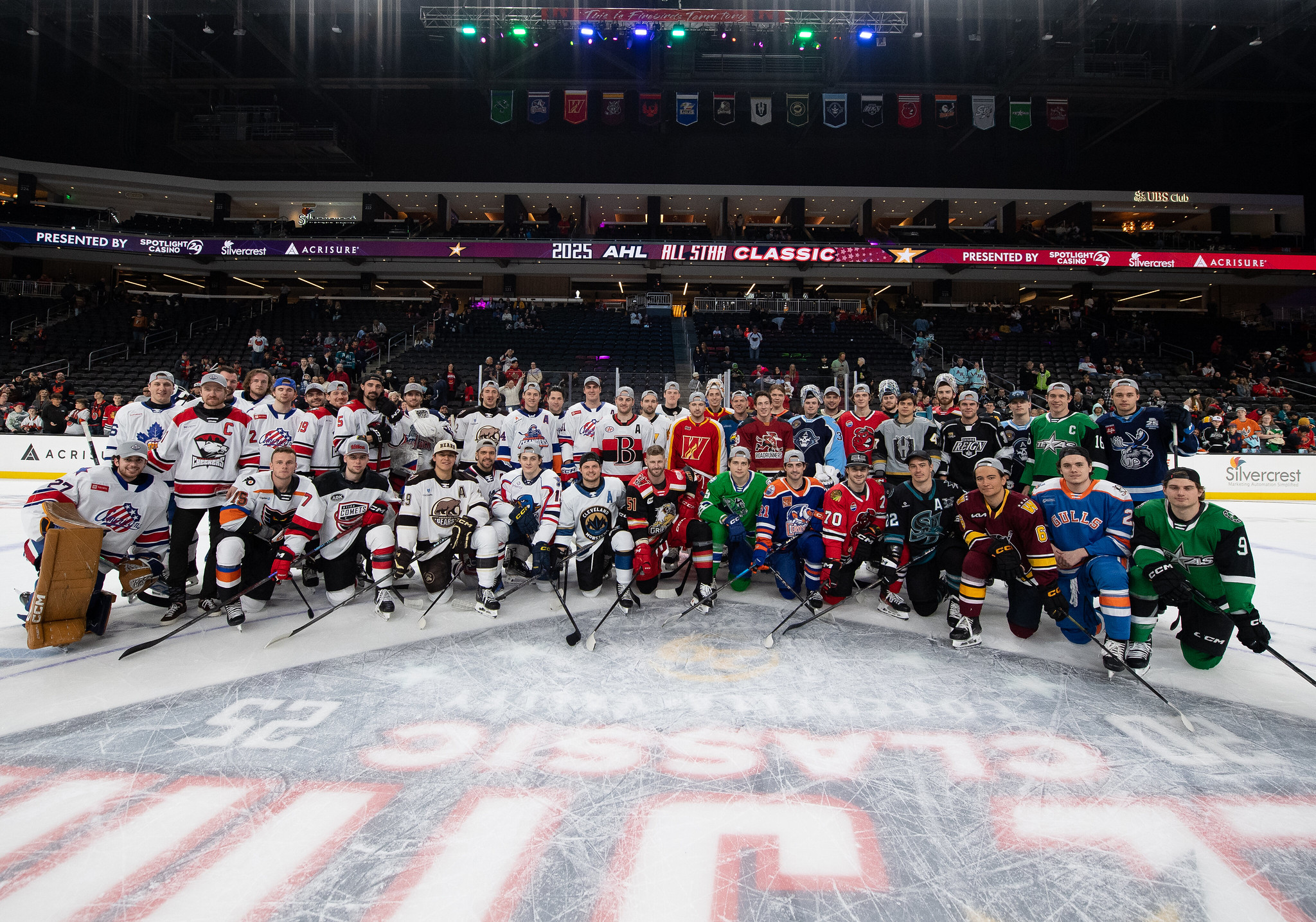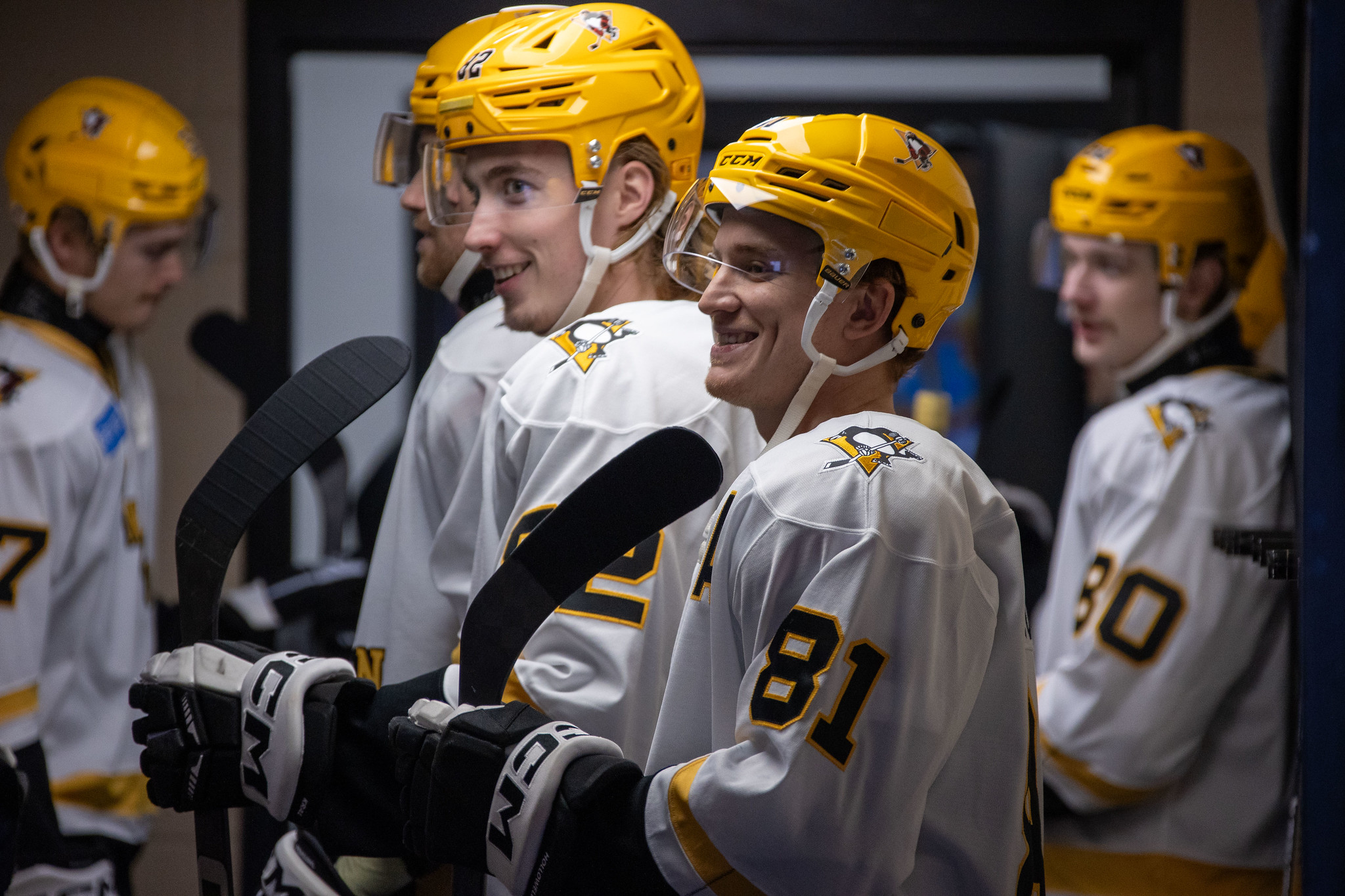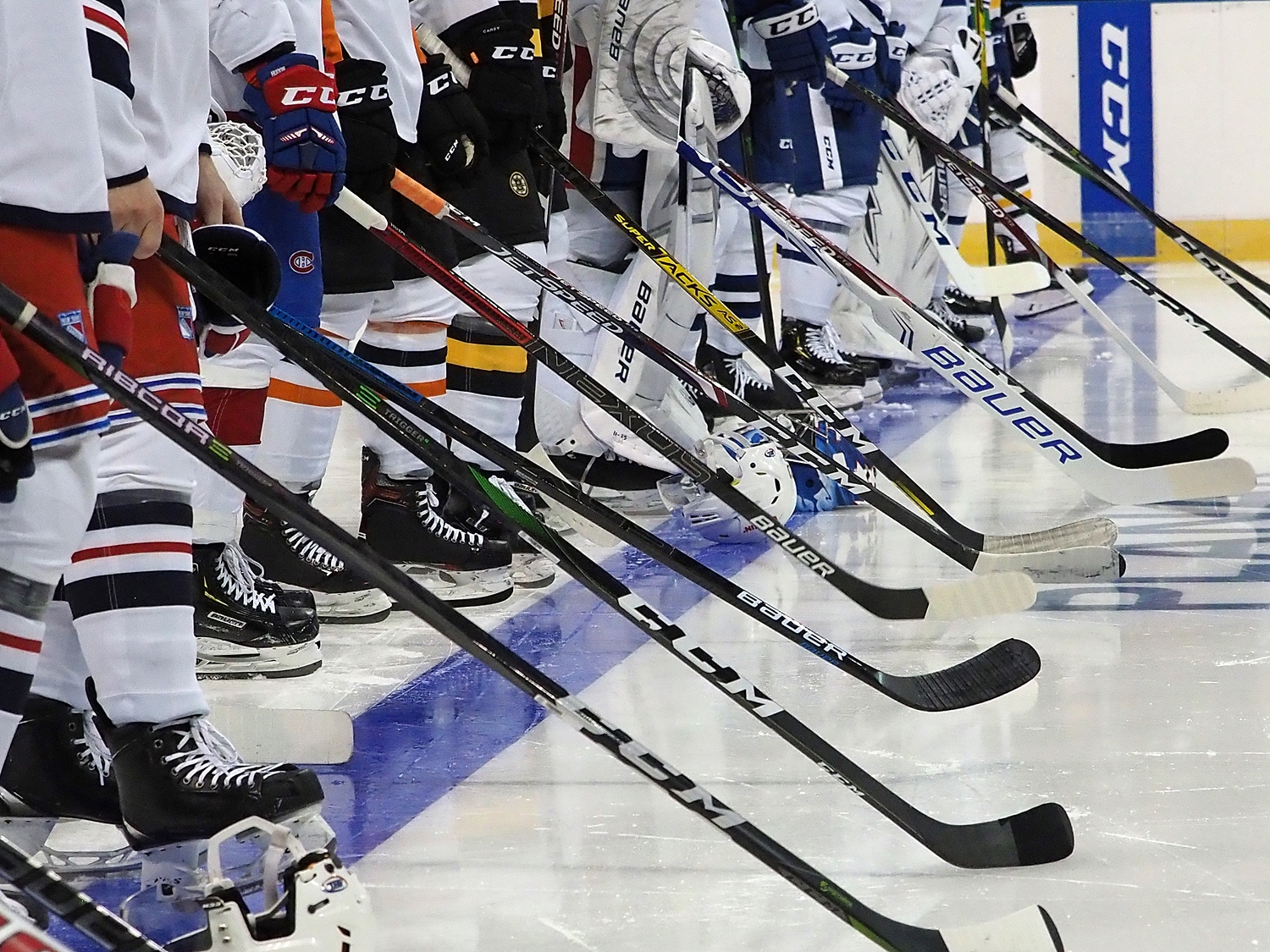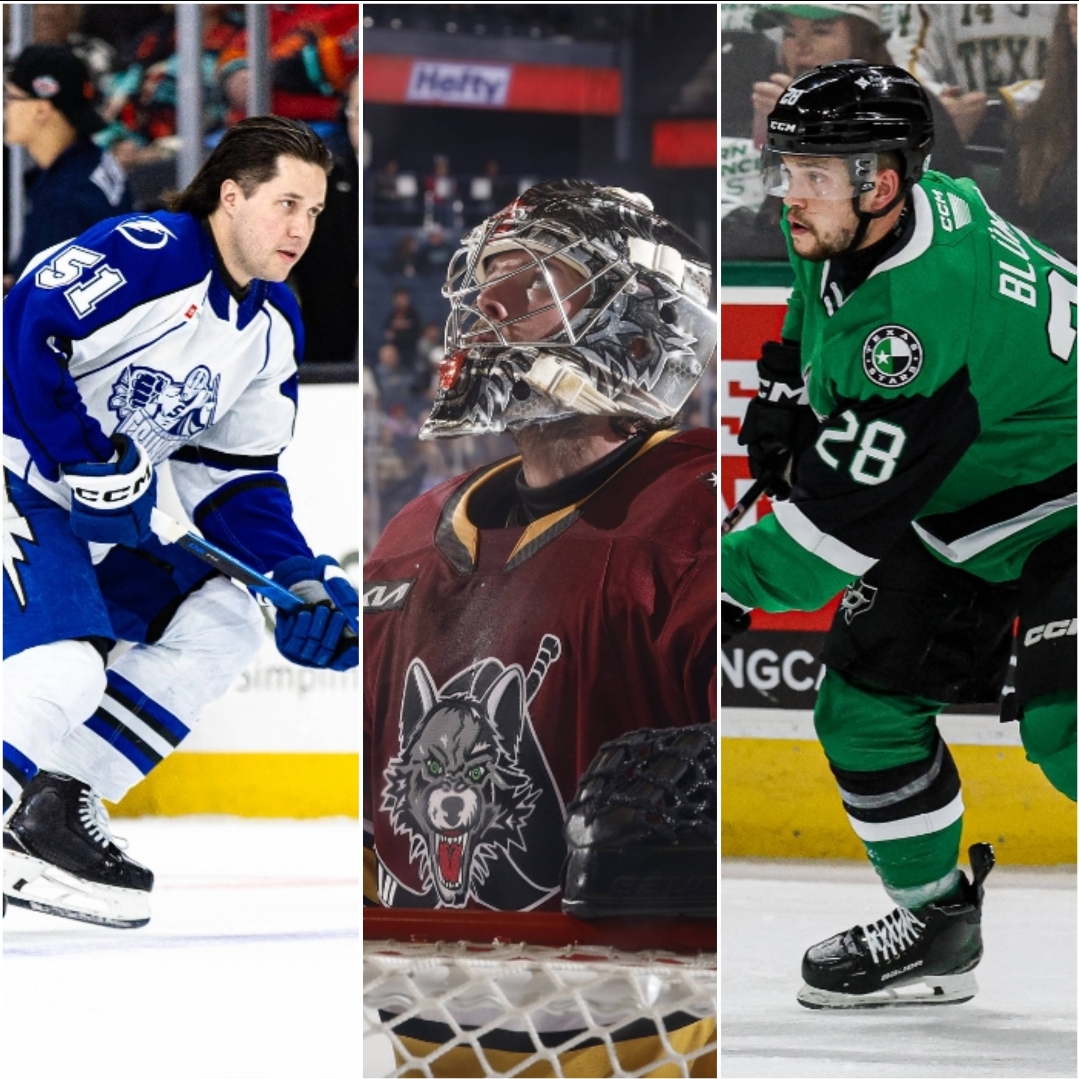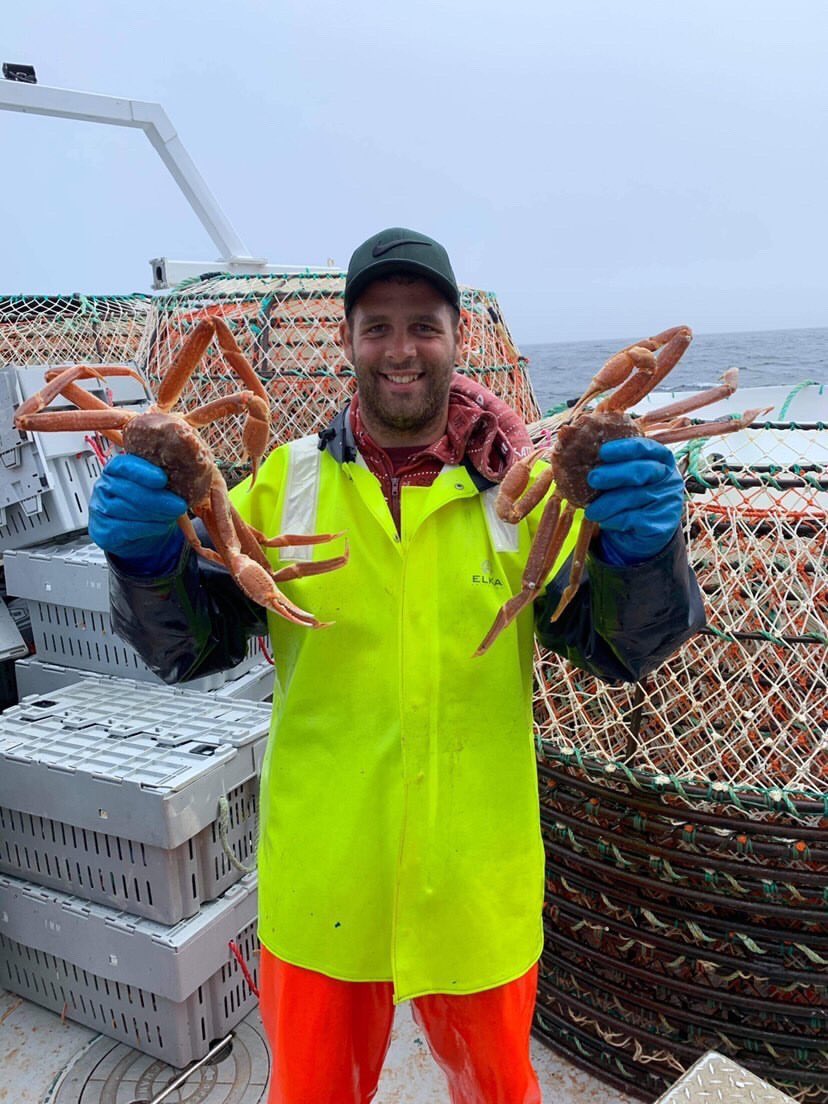
Inside The Life Of An American Hockey League Player
Utica CometsConsider signing up for a subscription so we can continue to bring you exclusive first-reports, prospect features and stories from around the American Hockey League (AHL).
Quick. Easy. Support original journalism!
Writer's Note: I appreciate Vinny taking the time to speak with me for my first piece at Inside AHL Hockey. We can’t do our jobs if the players/coaches/management aren’t into it.
“Pro hockey players have it all! They get paid a ton of money to play a game that many of us have to shell out money to play ourselves.”
That might be how some people view the world of professional hockey, and it might well be the case for those who jump from the junior or college ranks right into the NHL, but what about those who spend years plying their trade at the lower levels of pro hockey?
I have been covering the Utica Comets for four seasons, and I have often found myself marveling at some of the players who have been around the block a few times.
You know the ones.
They weren’t drafted, they had to make their way up the ranks from the ECHL just to land a tryout in the American League.
What drives players whose windows of opportunity at the NHL level might be waning to continue to go out there and be some of the hardest working players on an AHL sheet of ice?
The Utica Comets have a player on their roster who fits this description very well, so I reached out to 28-year-old Vincent Arseneau to find out what drives him as an AHL player. We also discussed what was a bit of a unique offseason training regime for him since his season ended with a hip injury last year.
I started covering the Utica Comets in the 2017/18 season, which was also the first year that 'BigVinny' arrived on the scene with the team on a tryout. Arseneau parlayed his all-out, human cannonball style of play into a one-way deal with the team for the following season, and the big man hasn’t looked back.
After spending parts of four seasons bouncing between the ECHL and the AHL, Vinny has found a home in Utica where he has enjoyed playing in front of their rowdy crowds for the past four years. BigVinny’s lunchpail game fits well with Utica’s blue-collar community and he has become a fan favorite there for his efforts.
So, how does a kid from Iles-De-La-Madeleine, Quebec end up playing pro hockey in Central New York?
Arseneau comes from a small community of roughly 13,000 people, many of whom are commercial fishermen. As someone who has spent time on commercial fishing boats, I can tell you that it isn’t an easy way to make a living. There are no shortcuts, you get out there and get the job done. This is to say that Vinny comes from a hard-working background and that definitely shows when he is on the ice.
Because hockey-playing options are limited in such a small community, Vinny left home at the age of 12 after being seen by some scouts who thought he should be playing more competitive hockey. Vinny left the comfort of home and moved in with a billet family.
“It was probably the hardest year for me in hockey. You know, I was 12-years-old… no dad, no mom. It was pretty hard, but I think that I learned and I got stronger mentally because of that. Since then I’ve just been following the path of hockey and basically travelled around the world. I’ve just been doing my job and trying to make it to the highest level.”
Arseneau spent four years in the QMJHL, split between the Acadie-Bathhurst Titan and the Shawinigan Cataractes where he wore an A on his jersey for a season. Vinny put up 108 points over 294 games in “The Q” and won a Memorial Cup with the Cataractes in the 2011/12 campaign. All the while playing the same physical brand of hockey that the fans in Utica have become accustomed to.
After his junior career wrapped up, Arseneau hit the road to AHL Lake Erie on a two-way deal. He spent 11 games at the end of the 2012/13 season with Lake Erie in the AHL, followed by 13 more in the 13/14 season. He also spent 47 games with the Denver Cutthroats in the CHL that season where he was coached by former NHL player Derek Armstrong.
Arseneau explained that Armstrong let him know that there weren’t many players around who could put up points, hit like a truck, and play an all-out game the way Vinny did. In those 47 games in Denver, Arseneau flourished, finishing fourth on the team in scoring with 24 goals and 37 points to go along with his 120 minutes in penalties.
The next four seasons were spent bouncing back and forth between the ECHL and the AHL with various teams and saw Vinny win back-to-back Kelly Cups with the Allen Americans. Vinny has some important playoff experience that he has been able to pass on to some of the young prospects that he has been able to work alongside since coming to Utica. I think it says a lot that in a time when high-end AHL veterans have had to head overseas to find work that Arseneau is back with the Comets and continues to lead by example on the ice.
Vinny’s rough and tumble brand of hockey can take its toll on a body, but the man has still suited up for 93 contests for the Comets and has performed well with 15 goals and 23 points to go along with his 198 penalty minutes.
In Kole Lind’s second season in Utica, we saw his game start to take off after he spent a handful of games on a line with Arseneau. I have spoken with Kole about that and he was quick with the praise for Vinny.
“When you’re on the ice with Vin, you have to be ready for anything," Lind said of Aresneau. "You know someone is going to get hit and a puck will come loose for a scoring chance.”
Playing with Arseneau woke Kole up and helped bring that physical, on the edge style of play back to his own game and we’ve seen how much that has helped Lind get on track with the Comets where he is currently the club’s first-line center.
As mentioned, that style of play can take its toll on a body and I asked Arseneau about that. How does he keep going out there, game-in and game-out and putting his body on the line? As we know, some players in the AHL make some pretty decent money, while others are probably making less than many of you who are reading this piece. Does Vinny play for the love of the game?
“I’ve been lucky, I’ve learned a lot from older players about working hard every day. I’ve been making my roots in hockey and I’ve learned how to win. I’ve been a part of that kind of culture and I want to bring that to the rink every day. I’ve been given a chance to be here and I look at it as a challenge.
"Every practice, I just go 100%, I just want to get better as well. I still believe that maybe one day I could have a shot to go higher. So I just work hard and try to teach the young guys what they need to do to win. You know… you have to work hard and the little details of your game will make a difference.”
“I’ve been playing this way since I played Bantam. My body has been beaten up, but I make sure to stretch and ice myself a lot. When you play hockey, there’s no pain, no gain. That’s just what I’m telling myself. It’s kind of my identity, I just try to do my best every game. Sometimes you’re going to get bruises, but sometimes you get to give them out too. You just need to mentally focus and do your job.
"I still love the game. If I didn’t like it, I would stop playing. Like you said, I put my body on the line every game. I think I love the game still and I enjoy being out here with the guys. As soon as I don’t have that feeling, I will go to plan B and do something else, like maybe fishing… get my own licence and get my own boat. But for now, I still like it so much. I still dream of playing just one game in the NHL… just one game, it doesn’t have to be a whole season, just one game is pretty much what I want.”
What kind of advice does Vinny pass on to the young NHL prospects in Utica?
“I think hockey is about the team, not one guy. When we all work together we can achieve pretty much anything. Your mental preparation has to be… whatever happens, we are going to come back. Carter Bancks gave his body to this team for seven years. I just try to show the guys, you might be sore, you might have a bad shoulder… it doesn’t matter, you just need to work an hour and a half a day, (practice). Go out there, give your full. In practice, in games, you just have to go out and give 100%."
"I’m always going 100%... if I’m not going 100% there’s something going on with me. You know, I’m not a big talker, I’m French, my English is not perfect. I just show the way. I just go out and work hard every day that I get the chance.”
Vinny’s Training During Covid Times
As mentioned earlier, Arseneau comes from a fishing community and when he isn’t out on the ice during the AHL season, Vinny is out on the water fishing crab and lobster.
“You know, 2020 was a special year. I didn’t know if there would be hockey and I had to make sure that I could pay my bills, and I’m just in the process of building my first house. A couple of captains saw that I was on the Island and they needed a helper for the season so I did the crab season for nine weeks… so basically two months and after that, I finished the Lobster season. I think it’s just in my blood. I don’t like to sit around on the couch, I like to keep moving, so I just take every experience that I can get.”
One of the other challenges that Arseneau faced early on over the past offseason was finding somewhere to train with the gyms being shut down in his area due to Covid. Vinny and a few of his friends challenged themselves to “The stairs of Cap aux Meules” which sounds an awful lot like the Grouse Grind that the Vancouver Canucks use as a welcome to the organization challenge for all of their new prospects.
“I was coming back from hip surgery and wanted to get into shape. The gyms were closed, so we decided to do that fun challenge. I think it is around 168 stairs. On day one we would do the stairs once, on day two we would do them twice, etc. So after you get to day 24, 25, 30, it gets to be a lot of steps. By the time you get to day 30, 31, you are basically walking up and down steps for two and a half hours. It’s pretty rough, mentally, but you go there every day and do it.”
“Next time, we might do it for a charity on the Island just to put some money in the budget. When you’re just 13,000-15,000 people, you probably don’t have all the same tools that people get in the big city, so if we can raise a couple of thousand dollars with that, we might as well do it.”
One of the other things that kept Vinny busy this off-season has been the construction of his first home. This isn’t a case of a millionaire hockey player hiring someone to build a palatial mansion for him. Arseneau enlisted the help of his father, and the two have jumped in with both feet.
“Basically, my dad and I have done A-to-Z. We’ve learned, and we’ve made some mistakes. That was probably the biggest challenge of my summer. We started right after fishing. You know, it’s not always easy working with your dad, and living with your dad and seeing him every day, but I really appreciate all of the work that he’s done and my mom as well. They’re still there working on it while I’m here playing hockey."
"I’ve never built a house before so I’ve been learning as I’ve gone along. I’ve learned from some mistakes and maybe if I build house number two it will be even better.”
In talking with Vincent Arseneau, I have come away with this impression… he’s just a really good dude. Arseneau is a regular guy who happens to be a pro hockey player. He has bills to pay, just like you and I. He comes from a small town full of hardworking people, just like many of us. He has a passion for the game of hockey and truly appreciates all of the experiences that have come with playing the game.
Arseneau is the salt of the Earth. As a hockey player, he “gets it.” He understands the help that he received along his path and is doing everything he can to pay that forward with his young teammates. He is a lead by example type of player who gives everything he has on every shift because he understands just how fortunate he is to be able to play the game that we all love so much.
It is players like Vincent Arseneau whose work ethic and drive rub off on your favourite team’s prospects while they learn the ropes at the AHL level. We need to appreciate these players for helping to bring along the young players who get the privilege of playing in the best league in the world.
I’ve watched Vinny play his all-out style of hockey for the past four years and I hope to see that continue for a few more before he hangs them up to buy that fishing boat and licence.
